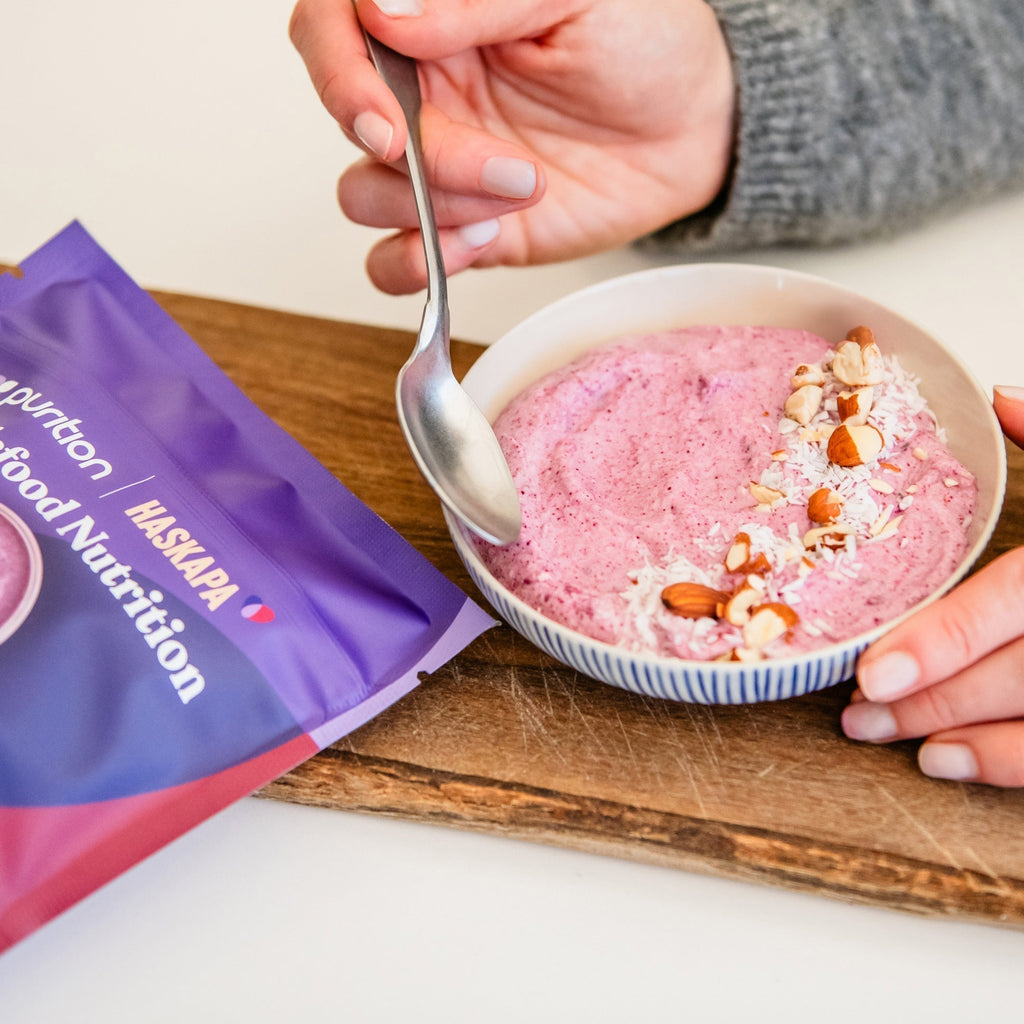The rise and rise of protein.
Protein has recently increased in popularity with health educators, nutritionists, and influencers, who regularly instruct us to eat more of it. We’re seeing it added to everything from breakfast cereals and yoghurts to pasta and crisps in our local supermarkets. And that’s before we get started on the smoothies and meal replacements. Previously, additional protein was reserved for only the realm of weight trainers and sports professionals, but now we’re all being told to eat more.
So why has this come about?
Nutritionists have always recognised that protein is essential to a balanced diet, efficient in maintaining satiety and supporting energy. This is because protein not only maintains lean muscle mass, but it supports hormone production and regulation, immune function, blood sugar regulation, appetite control and more. As further research has come to light, it has not only confirmed these health benefits but suggested some of us might not be eating enough.
So, how much should I eat?
Our protein needs change through our lifespan with different requirements dependent on different ages and periods of growth, but it is now suggested that many original recommendations may be inadequate. This particularly applies to those aged over 50, with guidelines now advocating a minimum of 1.2g per day per kilogram of body weight (dependent on health and fitness goals and activity levels).
This higher protein requirement has been studied for effectiveness at combating age-related muscle loss, which increases dramatically after age 50. Protein should be spread across the day to ensure effective absorption, and many people find it more practical to think of it as 20-30g of protein per meal.
Why include protein at breakfast?
In the past, protein has been considered as a main feature once a day, generally in evening meals, so one useful amendment to improving daily eating habits, balancing energy and keeping you full for longer is to ensure you start your day with some high-quality protein. This might be eggs, pulses, fish, nuts, seeds, a clean protein powder (such as our Purition Haskap Berry product) or natural yoghurt (check protein levels – many such as Greek or Skyr are high in natural protein).
The lowdown
Much of the ‘added’ protein in processed foods in supermarkets is from poor protein sources that may not be effectively absorbed. They tend to be added to foods that weren’t very healthy in the first place, so the protein is unlikely to improve things. Look out for artificial sweeteners, palm and sunflower fats and ingredients you don’t understand. Research suggests that we should be getting a wide variety of different protein sources, with the health benefits of including plenty of plant proteins in the daily diet now well recognised.
Research
Layman, Donald K, et al.
“Defining Meal Requirements for Protein to Optimize Metabolic Roles of Amino Acids.” The American Journal of Clinical Nutrition, vol. 101, no. 6, 29 Apr. 2015, pp. 1330S1338S, www.ncbi.nlm.nih.gov/pmc/articles/PMC5278948/, https://doi.org/10.3945/ajcn.114.084053. Accessed 23 Sept. 2019.
Nunes, Everson A., et al.
“Systematic Review and Meta‐Analysis of Protein Intake to Support Muscle Mass and Function in Healthy Adults.” Journal of Cachexia, Sarcopenia and Muscle, vol. 13, no. 2, 20 Feb. 2022, pp. 795–810, onlinelibrary.wiley.com/doi/full/10.1002/jcsm.12922, https://doi.org/10.1002/jcsm.12922.
Phillips, Stuart M., et al.
“Protein “Requirements” beyond the RDA: Implications for Optimizing Health.” Applied Physiology, Nutrition, and Metabolism, vol. 41, no. 5, May 2016, pp. 565–572, www.nrcresearchpress.com/doi/pdf/10.1139/apnm-2015-0550, https://doi.org/10.1139/apnm-2015-0550.

